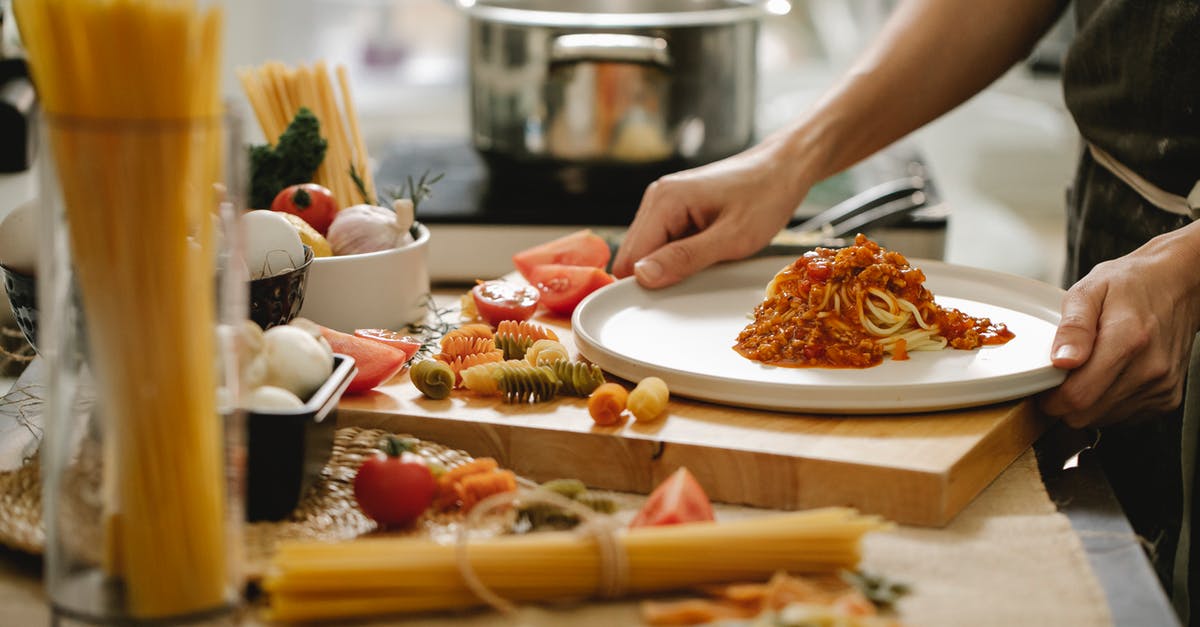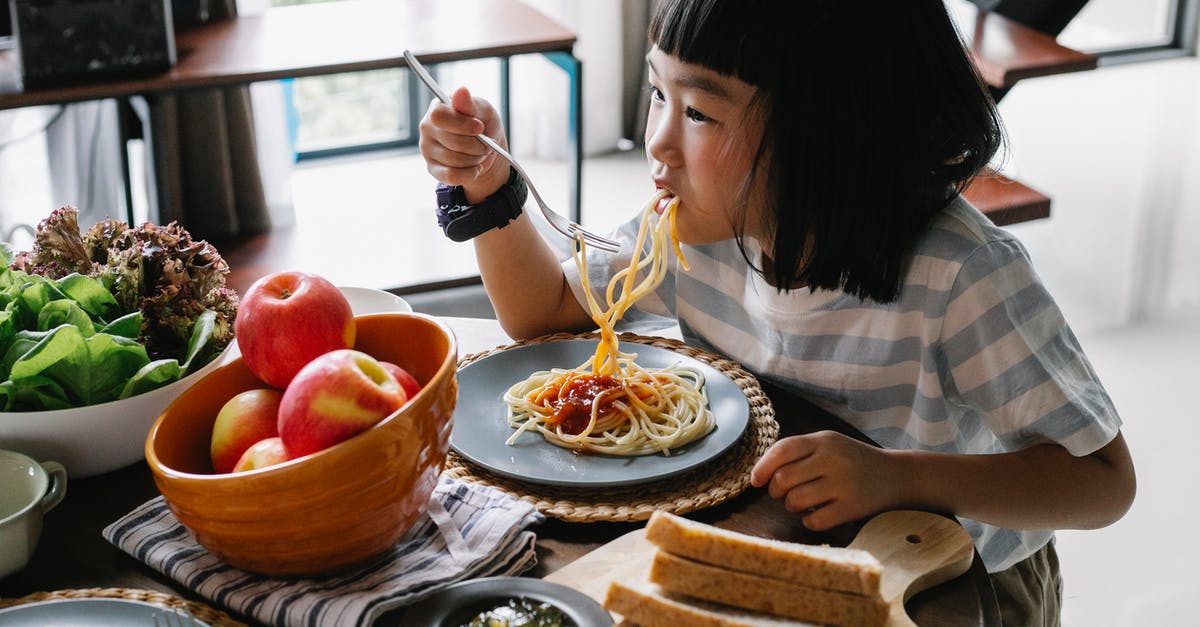Why does my home made chilli sauce ferment?

Good day all
My lovely wife makes a super sauce with chillies, olive oil, lemon juice, wine vinegar and garlic. Works a treat when we make a jarful for home use and one or two extra ones for friends. But when we try making a batch to bottle it ferments.
We have tried washing the bottles and caps with a teaspoon of bleach in water before filling, and also washing the chillies themselves with a similar dilution.
But after a few days the stuff has fermented.
How do we prevent this fermentation?
Thanks and regards, Stan and Odete, Johannesburg, South Africa
Best Answer
It ferments, like every other food mixture, because there's microorganisms (bacteria and yeast) in the air and the ingredients that reproduce and consume the sugars and starches in it. Any jarred vegetable, fruit, or herb will ferment unless there is something specifically to prevent microorganism growth. You can't get rid of these just by washing the outsides of everything, since these organisms are present inside the peppers, in the air, and particularly in the garlic, which is practically a microorganism incubator.
For some sauces, the fermentation is desired and intended, but apparently for yours it isn't. So let's look at the ways you can stop fermentation:
1) Canning: if you seal, and heat the jarred pepper sauce to a sufficient heat for enough time, that will prevent fermentation more-or-less indefinitely until it is opened. Depending on the heat-treatment and canning process, it may be storable at room temperature, or it may need to be refrigerated. Note that, since you're cooking the sauce, this may change its taste and texture.
2) Salting: if there's enough salt in your pepper sauce, it does not ferment because nothing can live in it; that's the secret to shelf-storable pepper pastes you can buy at the store.
3) Acid: on the opposite end, if the pepper sauce is sufficiently acidic, this will also stop fermentation; this is how shelf-stable pepper sauces like Tabasco work. You'll also need to strain out the solids, though. You need to be careful to add acids, like vinegar and citric acid, that don't come with too much additional sugar (like lemon juice does).
4) Artificial preservatives, like sodium benzoate, are strong anti-microbial substances that can prevent fermentation.
5) Combination: because peppers and garlic are difficult from a preservation perspective (peppers are low-acid and high-sugar, and I've already mentioned garlic), it can help to do a combination of methods. When I make jarred salsa, I add vinegar and can it, and preserved lemons use both acid and salt.
Anyway, the Ball site has lots more advice about canning and preserving, you can find pretty much everything you want to know there, and you can also look at the answers to this question.
Pictures about "Why does my home made chilli sauce ferment?"



How do you stop Chilli from fermenting?
Add the fermented hot sauce to a pot and bring to a quick boil. Reduce heat and simmer for 15 minutes. This will stop the fermentation process. NOTE: You don't have to cook the sauce if you don't want to.How do you keep homemade hot sauce from fermenting?
Once you pur\xe9e the chilies and bottle your sauce, it will continue to ferment. So store your fermented hot sauce in the refrigerator to slow down the fermentation process. You can also pour your sauce into jars and can it for long-term storage, but the high heat of canning will destroy the sauce's beneficial bacteria.What causes hot sauce to ferment?
Carrots, citrus, or berries are great examples. These ingredients are teeming with surface lactic acid bacteria, and are rich in natural sugar, which drives fermentation furter. Ingredients like garlic or spices can bring more complexity to your hot sauce.Is fermented hot sauce Safe?
Hot sauces that have vinegar, fermented peppers, and capsaicin are less likely to go bad. Together, they reduce the pH level to stamp out any bacterial activity. However, if your fermented hot sauce contains fruits, vegetables, and eggs, then I recommend refrigerating it, just to be on the safe side.How To Ferment And Make Your Own Hot Sauce, Easily
More answers regarding why does my home made chilli sauce ferment?
Answer 2
There could be a number of reasons why you are still getting fermentation. Normally for bottling of produce you use heat/pasteruization and/or osmotic pressure (i.e. high salt/sugar concentrations) and acid to help prevent the growth of bacteria and yeasts/fungi that can cause spoilage. Without a recipe to see if you have requisite conditions for preventing growth the following is some general advice that you might want to investigate.
Bleach is great for cleaning - if you use enough of it. Generally you need to use a tablespoon (15 ml) per gallon (3.7 l). I would not recommend using this concentration on food products though as it will most likely damage the food too or leave a chlorine residual smell. You need to soak for ~20 min to use bleach as an effective cleaner. Another option that is very effective is bisulfite (try your local homebrew shop or winery). To use, add 7.5 g/l in water, swirl around and drain. When you can no longer detect the smell, it is sterilized.
For the bottles and caps (assuming they are not plastic) I would however recommend an easier route - bake (make sure they are dry first) in the oven for 20 min or so at 180 C/375 F or boil fully submerged for 10 min or so, remove from oven/water and drain and allow to cool for a few minutes before adding the sauce.
For the sauce - if it is made by heating/cooking; bottle when it is as hot as possible into hot bottles (not straight from the oven though, this will shatter the bottles from thermal shock).
If the sauce is made without cooking, you need a pH that is fairly low (below 4 is generally recommended). Vinegar and lemon juice are generally around 2.8, so you are on the right track, but you need around 5% acid for this to be effective - might need to bump up the concentration you are using. I would also recommend adding some salt. The hot sauce I have at home, which sits happily on the table has about 240 mg of salt per teaspoon (5 ml) and I am yet to see it grow anything. Sauces with lower salt concentrations usually require refrigeration.
Sources: Stack Exchange - This article follows the attribution requirements of Stack Exchange and is licensed under CC BY-SA 3.0.
Images: Charlotte May, Klaus Nielsen, Alex Green, Alex Green
